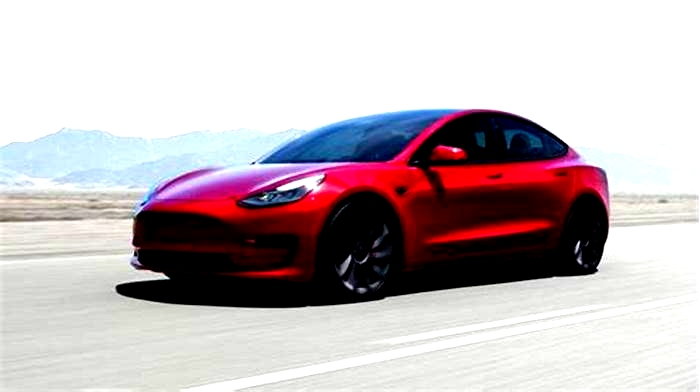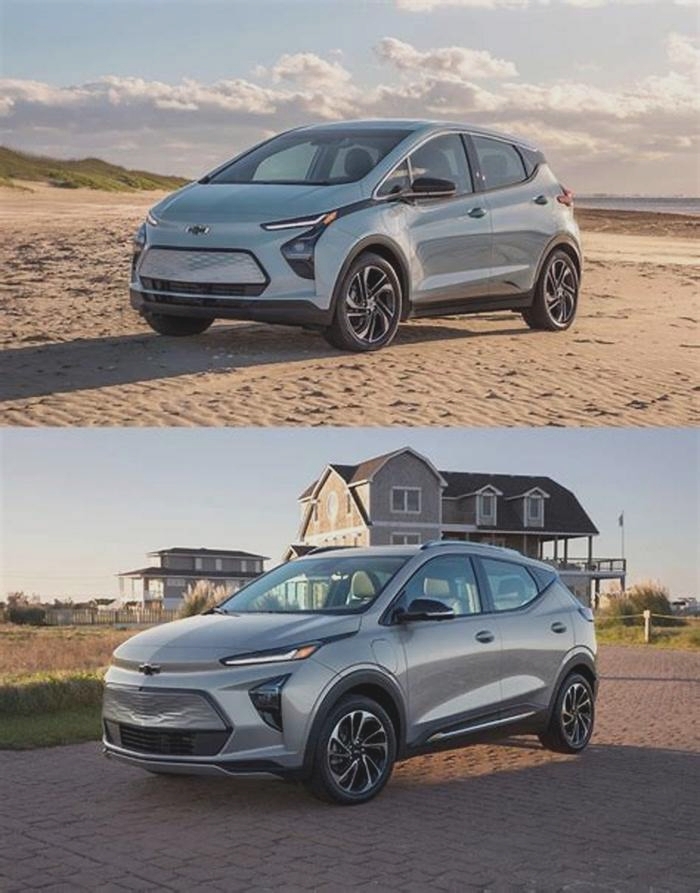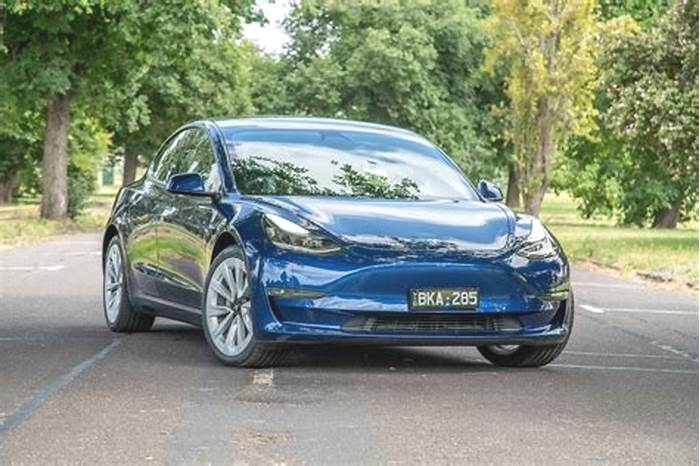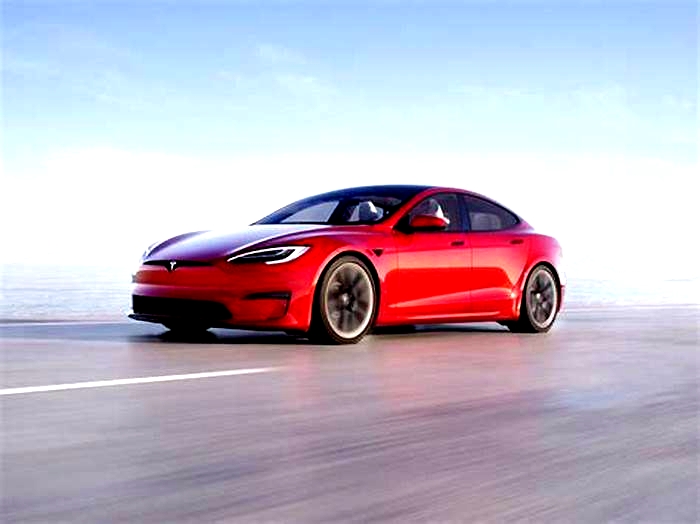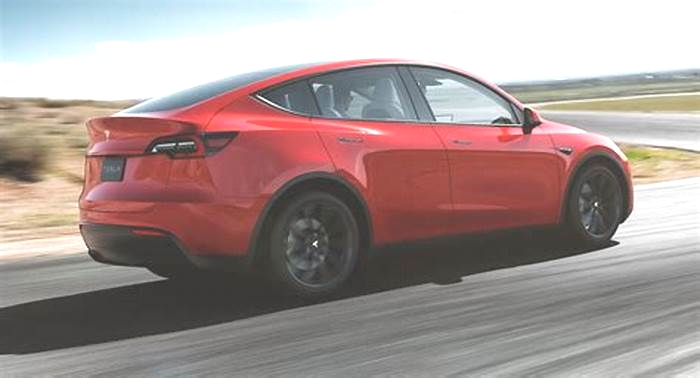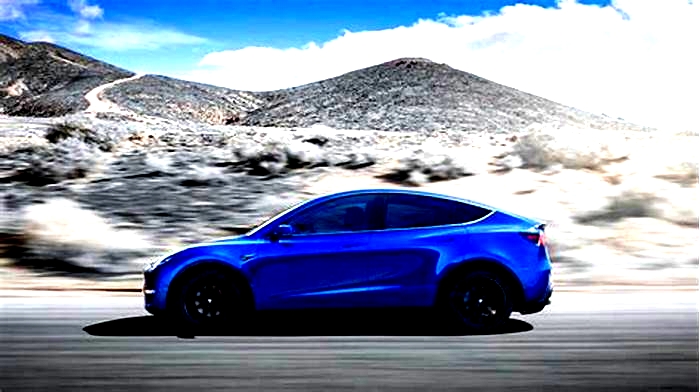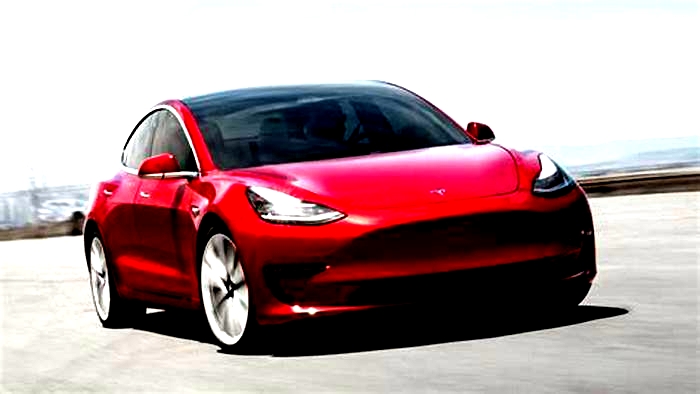Tesla Model 3 vs Chevrolet Bolt EV Comparing Range and Performance
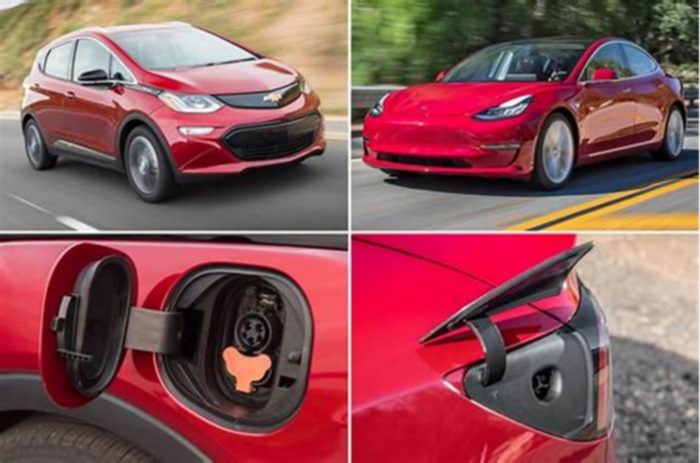
2021 Tesla Model 3 vs. 2022 Chevrolet Bolt EV: The Numbers
For 2022, the Chevrolet Bolt EV gets a number of styling revisions and new technologies along with a sizable price cut. Meanwhile, the Tesla Model 3 keeps leading EV sales with unmatched range and breathtaking acceleration.
Despite their vast differences, these two cars are similar in many ways. Which one is better? To help settle the debate, weve compared the numbers and specs. Heres what we found
Range: Model 3

Photo: Tesla
Range is a key factor for EV buyers. With a 66-kWh battery, the Chevrolet Bolt EV can travel up to 417 kilometres, which is impressive enough.
On the other hand, the Tesla Model 3 is slightly better in Standard Plus trim at 423 kilometres. If you select the dual-motor Long Range or Performance variant, youre looking at 568 or 507 kilometres, respectively.
We forgot to mention that the Model 3 is also available in Standard trim with a software-locked range of 151 kilometres. Virtually nobody chooses this model, which merely exists to qualify for the federal governments EV incentive of $5,000.
Charging: Model 3

Photo: Tesla
Using a 240V power source, the Chevrolet Bolt EV will fully charge in seven hours. Now, if you plug it into a DC fast charger, the automaker claims you can get 160 kilometres of range in 30 minutes.
At Tesla, the Model 3 Standard Plus can be fully charged in 8.5 hours. The Long Range and Performance variants require a bit more timeup to 10 hours. Still, Tesla has the edge thanks to its Supercharger stations, which allow the Model 3 to regain about 282 kilometres in half an hour.
Practicality: Bolt EV

Photo: General Motors
The Chevrolet Bolt EV offers more cargo space with 470 litres when the rear seats are up. Fold them down, and you get 1,614 litres for your luggage and other gear.
The Model 3s trunk is a tad smaller with a capacity of 425 litres, but dont forget the front storage compartment under the hood.
In both cars, the rear seatbacks are split 60/40.
Safety: Tie

Photo: William Clavey
Youre properly protected no matter which vehicle you pick. The Chevrolet Bolt EV comes with advanced safety and driver assistance technologies such as forward collision alert, automatic emergency braking, front pedestrian braking, lane departure warning, lane keeping assist and following distance indicator.
Whats more, rear cross traffic alert, blind spot monitoring and a rear parking assist are standard equipment on both cars. The U.S. Insurance Institute for Highway Safety (IIHS) has not yet rated the 2022 Bolt EV.
Tesla offers Autopilot semi-autonomous driving technology with the Model 3. However, units manufactured after May 1 use Tesla Vision instead, which relies exclusively on cameras. The IIHS therefore took away the Model 3s Top Safety Pick+ while it further assesses the new system.
Like the Bolt EV, the Model 3 features forward collision alert, automatic emergency braking, front pedestrian braking, lane departure warning and lane keeping assist.
In-car Technology: Tie

Photo: General Motors
Youll find essentially the same level of technology and convenience inside the two EVs. In the Tesla Model 3, a single 15-inch display is your central hub for all vehicle settings, functions and infotainment. You can sign up for access to popular apps like YouTube, Netflix or Twitch. Whats more, updates to the system and more can be done over the air.
The Chevy Bolt EV is a bit more conventional with two separate displaysan eight-inch instrument panel behind the steering wheel and a 10.2-inch touchscreen for infotainment. Apple CarPlay and Android Auto compatibility comes standard, as do other services like Amazon Alexa, Spotify and The Weather Channel. A 4G LTE hot spot is optional.
We cant declare a winner, here. It all depends on your preferences.
Price: Bolt EV

Photo: General Motors
While Tesla is advertising a cheap entry-level variant of the Model 3, most of the lineup is significantly more expensive, especially the Long Range and Performance variants.
The 2022 Chevrolet Bolt EV carries a base MSRP of $38,198, a drop of $6,800 from the outgoing 2021 model ($44,998). The Tesla Model 3starts at $44,999 for the Standard Range trim with just 151 kilometres of range. The more popular Standard Range Plus retails from $51,600. These prices do not include destination and handling charges.
The federal rebate of $5,000 applies to the Bolt EV and the two cheaper Model 3s. Provincial incentives can be as high as $8,000 in Quebec.
Warranty: Model 3

Photo: Tesla
Tesla has hands down the best coverage including a limited vehicle warranty of four years or 80,000 kilometres, whichever occurs first, versus three years/60,000 km for Chevrolet. Its the same thing with rust perforation. Tesla offers 12 years or unlimited mileage, while Chevrolets warranty is six years/160,000 km.
In both cases, electric powertrain components are backed for eight years. However, theres a limit of 240,000 kilometres with Tesla and 160,000 kilometres with the bowtie brand.
2019 Chevrolet Bolt EV vs. 2019 Tesla Model 3
When we compare the 2019 Chevrolet Bolt EV's and the 2019 Tesla Model 3's specifications and ratings, the 2019 Chevrolet Bolt EV has the advantage in the areas of typical lower range of pricing for used cars, and interior volume. The 2019 Tesla Model 3 has the advantage in the areas of reliability, resale value, overall quality score and base engine power. Based on this comparison of the 2019 Chevrolet Bolt EV's and the 2019 Tesla Model 3's specifications and ratings, the 2019 Tesla Model 3 is a better car than the 2019 Chevrolet Bolt EV.
2019 Chevrolet Bolt EV vs. 2019 Tesla Model 3 Pricing
A used 2019 Chevrolet Bolt EV ranges from $13,625 to $22,024 while a used 2019 Tesla Model 3 is priced between $22,988 to $34,892.
2019 Chevrolet Bolt EV vs. 2019 Tesla Model 3 Resale/Retained Value
Looking at the 5-year depreciation rate for both models, the 2019 Chevrolet Bolt EV loses 57.6 percent of its value and the 2019 Tesla Model 3 loses 46.7 percent of its value. This means the 2019 Tesla Model 3 retains 10.9 percentage points more of its value and has the advantage of higher resale value versus the 2019 Chevrolet Bolt EV.
2019 Chevrolet Bolt EV vs. 2019 Tesla Model 3 Quality Rating
The iSeeCars Overall Quality rating for the Chevrolet Bolt EV is 8.0 out of 10 while the Tesla Model 3's quality rating is 8.3 out of 10. This results in the Chevrolet Bolt EV being ranked 2 out of 12 Best Small Electric Cars and the Tesla Model 3 being ranked 1 out of 12. Out of 27 Best Electric Cars, the Chevrolet Bolt EV is ranked 3 and the Tesla Model 3 is ranked 1.
2019 Chevrolet Bolt EV vs. 2019 Tesla Model 3 Reliability Rating
iSeeCars Reliability Rating for the Chevrolet Bolt EV is 7.1 out of 10. For the Tesla Model 3 the reliability rating is 7.2 out of 10. This gives the Tesla Model 3 a slight advantage in reliability compared to the Chevrolet Bolt EV.
Engine Power and Fuel Efficiency Comparison
For engine performance, the 2019 Chevrolet Bolt EVs base engine makes 200 horsepower, and the 2019 Tesla Model 3 base engine makes 283 horsepower. Both the Bolt EV and the Model 3 are rated to deliver an average of 127 miles per gallon of gasoline-equivalent (MPGe), with highway ranges of 238 and 220 miles respectively. Both models use electricity. The charge time for the Bolt EV is 50 hours (120V), while the charge time for the Model 3 is 10 hours (240V).
Passenger Space Comparison
While both models are electric compact cars, the 2019 Chevrolet Bolt EV has the advantage of offering more interior volume, reflected in more rear head room, rear leg room, and cargo space. The 2019 Tesla Model 3 has the advantage in the areas of front head room, front shoulder room, front leg room and rear shoulder room.
Safety Ratings Comparison
When comparing crash test ratings from NHTSA, both the 2019 Chevrolet Bolt EV and the 2019 Tesla Model 3 have the same average safety rating of 5 out of 5 Stars.


